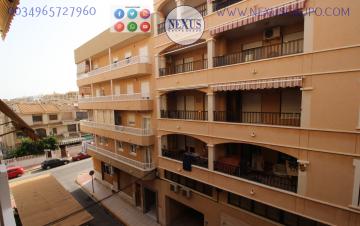You do not have any favourites
News
-
What should you take into account when renting an apartment as a tenant?
11th December 2025 -
They have sold me a house with squatters; what can I do?
5th December 2025 -
Congress overturns Sumar’s bill to ban investment funds from buying homes.
27th November 2025 -
What is the most economical heating for an apartment, and why?
21st November 2025 -
Living in Almoradí: best areas, cost of living and main advantages
20th November 2025 -
The PP seeks to amend the Penal Code in the Senate to legalize cutting off utilities in squatted houses.
19th November 2025 -
Feijóo criticizes Sánchez’s housing policy: “He will turn a Spain of homeowners into a Spain of precarious citizens.”
19th November 2025 -
How does the rent increase with the CPI work in 2025?
17th November 2025 -
Feijóo criticizes Sánchez's housing policy:
13th November 2025 -
How to detect fake documentation from a potential tenant
12th November 2025
NEIGHBORS WITH HEART
23rd August 2021
REAL ESTATE, NEXUS GROUP, INFORMA.
Currently in the Community of Madrid, it is not mandatory to have defibrillators in residential farms. Since 2017, only large commercial establishments with an area greater than 2,500 meters, airports, transport facilities, public establishments with a capacity equal to or greater than 2,000 people, establishments dependent on the Administrations are required to have a defibrillator. Public facilities, sports centers or complexes with more than 500 daily users, hotel establishments with more than 100 beds, educational centers, work centers with more than 250 workers and residential centers for the elderly with 200 beds. Recently, it was also expanded to medical centers that perform interventional techniques in diagnostic activities or in the treatment and administration of drugs, such as dental clinics.
The decree that regulates the installation of defibrillators outside the health field also established the creation of a registry, in which at the end of March this year there were 7,598 defibrillators discharged. The objective of this registry is to have a geolocation map of defibrillators in the region. It is publicly accessible and can be consulted.
In Spain, a cardiorespiratory arrest occurs every 20 minutes (30,000 a year) and 75% takes place at home according to data from the Spanish Heart Federation. If a defibrillator is applied within 3 minutes after cardiac arrest, survival increases by 73% and if it is used in less than 5 minutes, the chances are increased to 50%.
But it must be borne in mind that, depending on the physical dimensions of the farm, a single defibrillator may not be enough. Specifically, in communities with large common areas with swimming pools and sports areas, the ideal for a properly protected cardio space is that there is a defibrillator less than 5 minutes (round trip) from any place where a sudden cardiac arrest may occur.
info@nexusgrupo.com
0034 965727960
